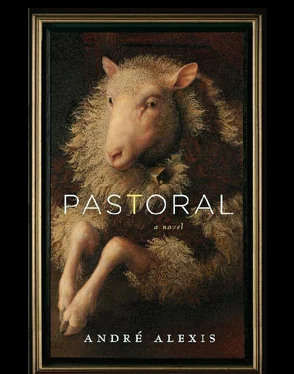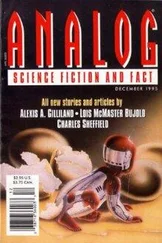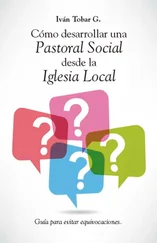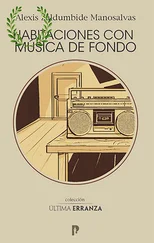— I hope your experiments are successful, Heath.
— Why is that, Father?
— Because I can see you love your work.
— That I do, said Lambert. Thank you, Father.
Understandably, Father Pennant lost some of the lightness he’d felt during his first weeks in Barrow. His encounter with the gypsy moths — and Heath Lambert — put him off balance. He was now more acutely aware of himself as an outsider. Still, Barrow had not entirely alienated him. And to commemorate the end of his second month in town, he went to the bakery, looking for a loaf of the bread Harrington himself had sold him on his first day.
Pushing the door to the bakery open, he immediately smelled the kaiser rolls that had recently come from the oven and were now cooling in a wooden bin. He took two rolls and then, seeing the bread he wanted on a shelf, he took two of those as well. To his surprise, the bread too was warm and pliable and smelled of yeast and walnuts.
— Good morning, Father Pennant.
Elizabeth Denny, the bakery’s cashier and assistant manager, smiled, took the bread from his hands and put it in two paper bags.
— This is wonderful bread, said Father Pennant.
— Yes, I think so too, said Elizabeth. You’re lucky you came when you did, though. There aren’t usually any left by now.
Father Pennant thanked her, then stepped out into the sunny mid-afternoon world that smelled of dust and gasoline. He had walked half a block or so when he was stopped by Elizabeth, who tugged lightly on the sleeve of his soutane.
— Father, she said, I’m sorry to bother you. Do you mind if we talk a little?
— I don’t mind at all, said Father Pennant. What is it?
— Maybe we could go to Barrow Park, she said. I can sit and eat my lunch there.
— A good idea. I’ll even join you. I don’t think I can keep my hands off at least one of these kaiser rolls.
They walked together to the centre of town where Barrow Park, a circle of grass some two hundred yards in diameter, stood partially shaded by an imperfect semicircle of willows. In the centre of Barrow Park was a statue of Richmond Barrow looking like an Old Testament prophet. He stood, or his bronze double stood, in formal clothes pointing toward the heavens while staring in the distance at whatever world it is the bronzed see. In the park there were four benches disposed around the statue. Elizabeth and Father Pennant chose the one facing Barrow himself and talked about insignificant things while they ate: a lamb sandwich, in her case; a still warm kaiser roll, in his.
When they had finished eating, they talked about the coming Barrow Day. And then Elizabeth unceremoniously asked
— Father, do you believe it’s possible to love two people at the same time?
Father Pennant, taken aback, did not know how the question was meant. He had heard the same rumours as everyone else but he still found the question odd, coming as it did from a woman who was, as far as he knew, soon to be married. This was the second time she’d caught him off-guard with a question about love. She had not called the wedding off, but perhaps she was having doubts about marriage. As gently as possible, he asked
— Are you in love with someone other than Robbie?
Elizabeth laughed: a dry, unconvincing sound.
— No, she said. I’ve just been thinking about love lately. I think you know why.
— Oh, I see, said Father Pennant. Yes. Well, let me think … I don’t have a lot of experience but when I was in love there wasn’t room for anyone else in my heart. I can’t imagine being equally filled with two true loves at the same time. So, my first answer would be no. I don’t think it’s possible. What do you think?
— I don’t know, answered Elizabeth. I don’t see how you can love more than one person at a time. But then God loves us all equally, doesn’t He?
— Yes, but the love we feel for each other is different from the love God has for us. Our love is an echo of divine love. That’s what I think, anyway. I don’t know. It may be possible for a man to love two women or for a woman to love two men, but how would this poor person live?
— Mormons can have more than one wife, can’t they?
— Yes, but most of them choose not to. Too difficult. Still, to answer your question: maybe a man can feel equal love for two women, but my advice for that man would be to find the one woman who truly completes him.
The sun had moved to the west, but it was still almost as bright as noon. The park’s pigeons had more or less camped out before them, walking back and forth, mindfully unmindful, as if to say ‘We’re only here taking sun, we want nothing from you,’ heads as if pecking at the air, the occasional rrroo sounding as one or two of the birds fluttered their wings and rose before setting down again. After a while, the weight of the birds’ waiting impressed itself on Father Pennant’s imagination. He shredded a piece of his remaining kaiser roll and scattered its morsels in an arc, so all the birds could have a chance at the bread.
— I don’t think you’re wrong, Father, said Elizabeth. But what if some people are more gifted than others at loving? We can’t all run as fast as the fastest. Maybe we can’t all love as deeply as the deepest either.
— You have been thinking about all this, said Father Pennant. But let me ask you a question. How would you know that a man loved two women equally? How could you tell? Isn’t that something only he would know?
The pigeons, joined now by aggressive sparrows, were in a kerfuffle, jostling, flying or trying to fly off with the bigger pieces of bread. Looking at the birds, one had the impression the ground was alive with grey, white and brown feathers, wings and bird heads.
— He’d have to prove it, said Elizabeth. You give him a choice and if he can’t choose one woman or the other, he loves them both the same.
— There you go, said Father Pennant. But if he can’t choose, he’ll be like that donkey who can’t choose between two equal piles of hay and dies of starvation. Buridan’s ass. That’s the donkey’s name. You can imagine how amusing that name was when I was in seminary.
Elizabeth smiled politely, though she was not looking at him directly.
— I’ve got to get back, she said. Thanks for talking to me.
— I enjoy talking with you, said Father Pennant. Any time you like.
The two of them got up as one, shook hands and went off in different directions. Father Pennant, with his paper bags, one now neatly folded inside the other, walked away thinking of his time at the seminary. From the moment he’d given his life to God, joy had come into his soul, and joy was with him still, at times, though he no longer found God at the centre of his happiness. Nature was often there — as if in God’s place — and, now he thought of it, it felt at times as if he served two masters or was himself devoted to two loves. Perhaps he’d been hasty in suggesting a man could not love two women equally.
Elizabeth, for her part, was grateful for Father Pennant’s advice. She understood him to have said that it was not possible to love two people at once. So, how would she get Robbie to choose between her and the woman whose name now sounded like a nasty word, Jane Richardson?
III — JUNE, JULY AND AFTER
George Bigland had gone to Milwaukee for vacation and he had taken his sons with him. His wife was a capable woman. She had to be, given Farmer Bigland’s habits: principally, drink and self-pity. She could have run the farm with her daughters alone, but Bigland had asked Robbie Myers to help out and Robbie had taken time away from work on his father’s farm to tend the sheep.
There was nothing new about this arrangement. Robbie had been helping to tend the sheep since he was a boy. Bigland and Robbie’s father (also George) had been best friends since childhood. There had even been some hope that Robbie would marry one of the Bigland girls and unite the families. But Robbie had feelings of his own, it seems. He fell in love with Liz Denny, the orphan, and this love had disappointed his father, the Biglands and the Biglands’ daughter Anne, who’d had a crush on Robbie from the time when they were young enough to bathe together.
Читать дальше












